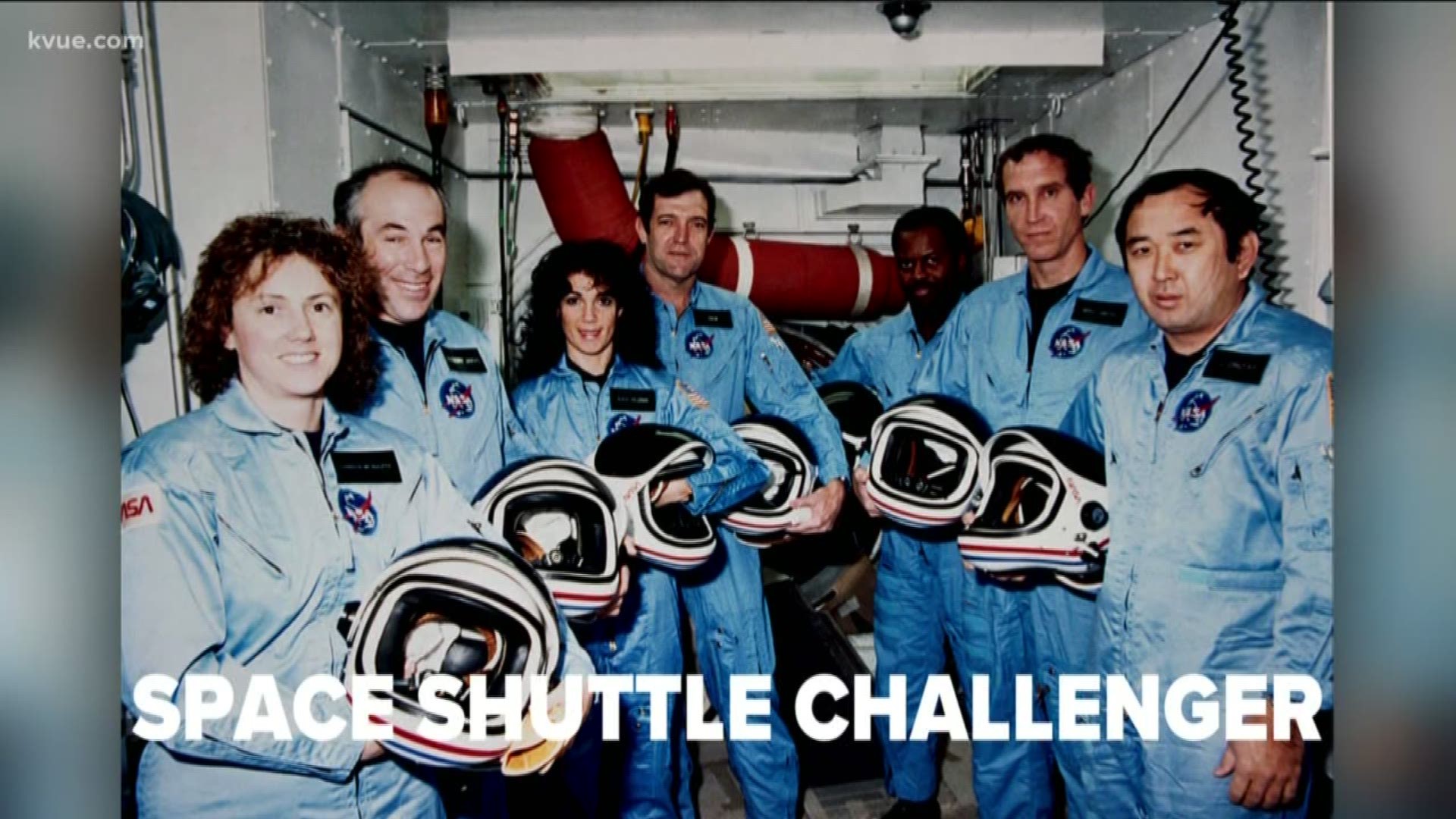AUSTIN, Texas — Jan. 28 marked the 34th anniversary of one of America’s early space tragedies, when seven shuttle astronauts died as their craft broke up shortly after it was launched.
Among the victims was Christa McAuliffe, who was on her way to becoming the first ordinary U.S. civilian to travel into space. The 37-year-old high school social studies teacher won a competition that earned her a place on the crew. She underwent months of training.
Millions watched on television – including McAuliffe’s students back in New Hampshire – as the launch took place on a chilly Florida morning in 1986.
The rocket carrying the shuttle started normally and began propelling the astronauts into space. But something went wrong 73 seconds after liftoff. The shuttle broke up in a fireball. There were no survivors. Ghostly plumes of smoke lingered in the morning sky as it became clear that all had witnessed a tragedy.
Later, an investigation determined the disaster was caused by the failure of an “O-Ring” seal in one of the two solid-fuel rockets that didn’t work as it should have because of the cold temperature at launch time.
In Austin, as everywhere else, there was shock and sadness. Among the mourners were children who looked forward to watching lessons beamed from the shuttle into their classrooms.
At Round Rock High School, teachers led discussions as students tried to understand how such a tragedy could happen.
At Travis Heights Elementary, teachers and students prepared a simple memorial that included pictures of the astronauts, flowers and notes from the children. At a solemn assembly in the school’s courtyard, a sixth-grader spoke as students looked on:
"I've heard people say since the day that the Challenger exploded that if God had wanted us to fly, he would have given us wings. But I don’t believe that at all. What I do believe is that God gave us the mind to go far places. To me, all who were set to go far places like outer space are people like Ghandi, Martin Luther King and the seven crew members, just to name a few. They are very, very special.”
PEOPLE ARE ALSO READING:

